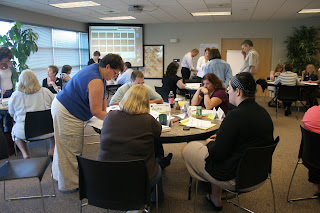Workshop Objectives
This workshop will equip you with industry best practice and performance tools to effectively:
- Plan a strategic and systematic approach to determine true training needs in your company.
- Requests for training (the common reactive approach)
- Identifying future training needs in the organization (1-2 years forward, a pro-active approach).
- Evaluating existing curriculum with the view to continue or discontinue (a current, pro-active approach).
- Gather information on the job performance of your target group(s)
Identify job performance gaps and determine the cause(s) of the gaps. (Make the correct diagnosis) - Recommend training and non-training performance solutions. (Provide the right solution
- Build the case for organizational readiness to ensure that the training solution is fully implemented back in the workplace.
For more on the workshop, check out a message from Terrence Donahue by clicking the link below.
http://www.performancemakergroup.com/id95.html
Registration
Date: July 29, 2011
Time: 8:00 a.m. - 12:00 p.m.
Where: Tero International
Register at: http://www.astdiowa.org






















